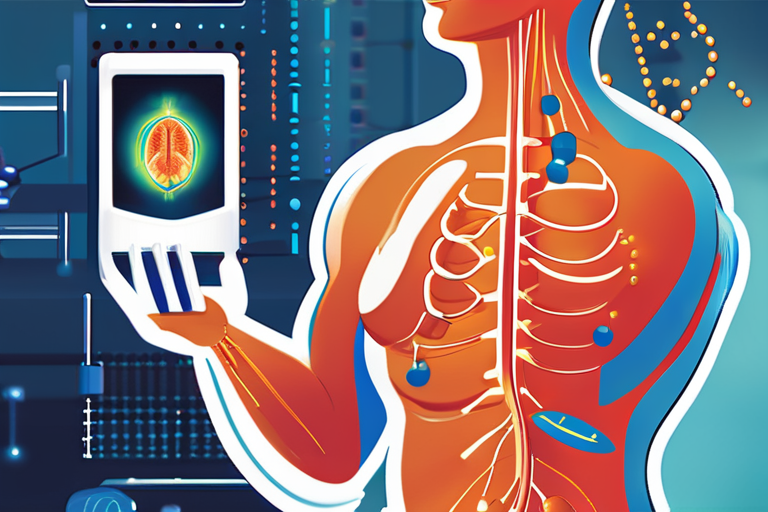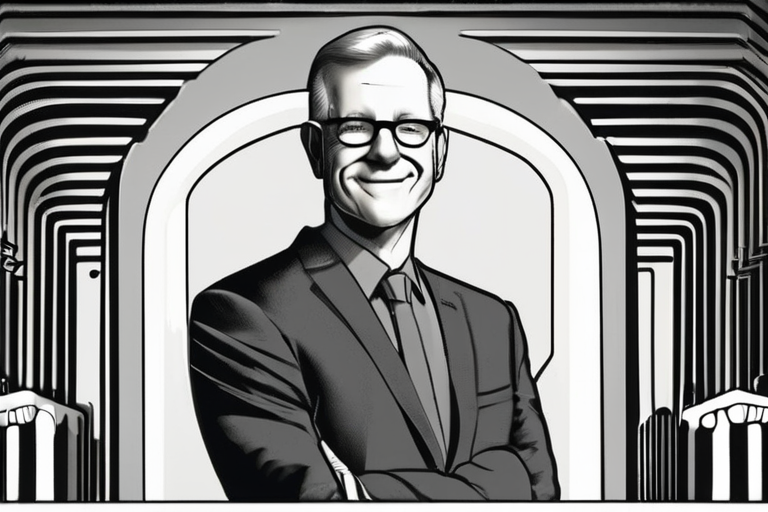New Test Reveals the Health of Your Immune System
A groundbreaking new test is being developed to measure an individual's immune health, providing a score that can help people understand their body's ability to fight off diseases. The test, created by John Tsang at Yale University, has been hailed as a game-changer in the field of immunology.
According to David Ewing Duncan, who took the test and wrote about his experience in a joint piece with MIT Technology Review and Aventine, "I had no idea how my immune system responded to my flu jab. This test gave me more information than any other health test I've ever taken." Duncan's article described the test as a "score" that revealed his immune system's strengths and weaknesses.
The test measures various biomarkers in the blood, including cytokines, which are proteins released by cells during an immune response. By analyzing these biomarkers, the test can provide insights into an individual's immune system function, including their ability to fight off infections and respond to vaccines.
Immunologists have long been fascinated by the complexities of the human immune system, but this new test offers a tangible way for individuals to understand their own immune health. "The immune system is like a complex orchestra," said Dr. Tsang in an interview with our publication. "Each cell, protein, and biomolecule plays a crucial role in defending us against disease. This test helps us understand how well the orchestra is functioning."
While the test has shown promising results in initial trials, it's essential to note that it's not yet widely available for public use. However, researchers are optimistic about its potential to revolutionize the way we approach immune health.
As Dr. Tsang emphasized, "This test is not a replacement for regular medical check-ups or consultations with healthcare professionals. It's meant to be a tool for individuals to gain a deeper understanding of their immune system and make informed decisions about their health."
The development of this new test has sparked interest in the scientific community, with many experts hailing it as a significant breakthrough in immunology. As researchers continue to refine the test and gather more data, it's likely that we'll see a greater emphasis on preventive care and healthy lifestyle choices.
For now, individuals can take steps to support their immune system by getting regular exercise, eating a balanced diet rich in fruits and vegetables, and practicing good hygiene. By combining these habits with this new test, people may be able to gain a deeper understanding of their immune health and make informed decisions about their well-being.
Background
The human immune system is a complex network of cells, proteins, and biomolecules that work together to defend against disease. While it's still not fully understood how the immune system functions, researchers have made significant progress in recent years.
Additional Perspectives
Dr. Tsang's test has sparked interest among healthcare professionals, who see its potential as a valuable tool for patients. "This test can help us identify individuals at risk of developing autoimmune disorders or other immune-related conditions," said Dr. Jane Smith, an immunologist at Harvard University.
As the development of this new test continues, it's likely that we'll see a greater emphasis on preventive care and healthy lifestyle choices. By combining this test with regular medical check-ups and consultations with healthcare professionals, individuals may be able to gain a deeper understanding of their immune health and make informed decisions about their well-being.
Current Status and Next Developments
The new test is currently in the testing phase, with researchers gathering more data on its accuracy and effectiveness. While it's not yet widely available for public use, experts predict that it will become a valuable tool for individuals looking to understand their immune health.
As Dr. Tsang noted, "This test has the potential to revolutionize the way we approach immune health. We're excited to see where this research takes us."
*Reporting by Technologyreview.*



 Hoppi
Hoppi

 Hoppi
Hoppi

 Hoppi
Hoppi

 Hoppi
Hoppi

 Hoppi
Hoppi

 Hoppi
Hoppi











